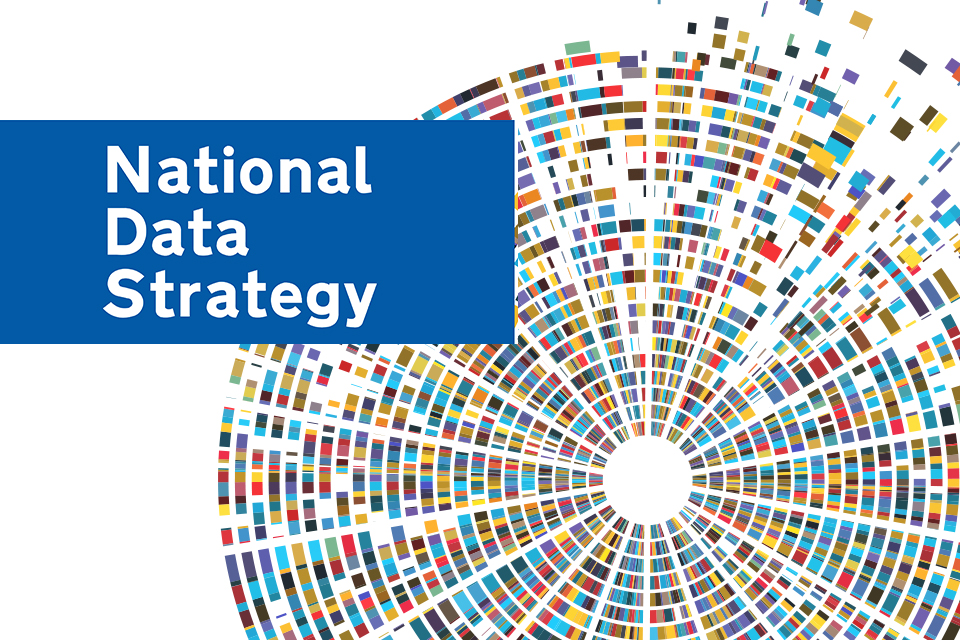 Finn Dymond-Green discusses the UK Government’s National Data Strategy.
Finn Dymond-Green discusses the UK Government’s National Data Strategy.
The UK Government published its National Data Strategy recently, with a consultation open until 2nd December 2020.
The UK Data Service welcomes the National Data Strategy and its aim to be
a central part of the government’s wider ambition for a thriving, fast-growing digital sector in the UK, underpinned by public trust.
Rt Hon. Oliver Dowden CBE MP (Secretary of State for Digital, Culture, Media and Sport)
The strategy recognises the enormous value of data to the public, private and third sectors while also acknowledging that technology has recently advanced at a huge rate and consequently that new challenges in the data sphere are arising all the time.
The strategy aims to lead on an approach which minimises barriers to accessing data while also maintaining privacy and trust in the collection and use of data.
The strategy identifies pillars, missions and opportunities.
Pillars
The strategy is built upon four pillars of effective use: foundations, skills, availability and responsibility.
The strategy’s view of the pillars makes for interesting reading, starting with its discussion of data foundations, by which the strategy’s authors mean
Are the data fit for purpose?
Are they recorded in standardised formats on modern future-proof systems?
Are they held in a condition that means they are findable, accessible, interoperable and reusable?
The strategy identifies co-ordination between organisations and increased interoperability as routes to improving effective data use. There is also recognition that there are issues with data quality, consistent data and metadata standards, as well as ongoing challenges of legacy and incompatible systems, all of which hinder effective and collaborative use of data.
The government has committed to launching a Data Quality Framework, as well as a Data Maturity Model for government, among other attempts to tackle these challenges. The strategy also includes the aim to be
a data champion across the world.
The strategy emphasises that data skills development will be key to the development of the data-based economy. Already, the Royal Society has identified a three-fold rise in demand for specialist data skills since 2013 and that demand is likely to grow further. As a relatively new area, there is not currently a clear profile for the different levels of data skills needed in different areas and roles.
The strategy also identifies the need for more co-ordinated national leadership on data skills development and increased opportunities in formal and vocational education.
The powers created by the Digital Economy Act (2017) are among the approaches the strategy puts forward for addressing and removing barriers to wider data sharing.
In terms of responsibility, the strategy advocates a pro-growth legal regime in order to encourage innovative use of data.
Within this context, organisations should be ensuring skills development and security are integral parts of their use of data, while individuals should be empowered to have greater control of the use of their data. The strategy is careful to recognise the need to balance ease of effective data use with privacy needs and security.
Many of the questions relating to the pillars are ones which the UK Data Service have researched, discussed and identified approaches to answering them, and we look forward to contributing to this important national debate.
Missions
Building on these pillars, the strategy identifies five missions:
- Unlocking the value of data across the economy
- Securing a pro-growth and trusted data regime
- Transforming government’s use of data to drive efficiency and improve public services
- Ensuring the security and resilience of the infrastructure on which data relies
- Championing the international flow of data
Opportunities
The strategy identifies opportunities which could arise from the pillars and missions, namely growth, jobs, public services, research and society.
Diagram representing the National Data Strategy’s pillars, missions and opportunities.
We encourage you to read the full National Data Strategy and contribute to the consultation.
I really believe that for the National Data Strategy to succeed, it needs to be as open and collaborative as possible.
Gaia Marcus, Head of the National Data Strategy, writing in a blog post for the Department of Digital, Culture, Media and Sport.
About the author
Finn Dymond-Green is the UK Data Service Director for Impact.


